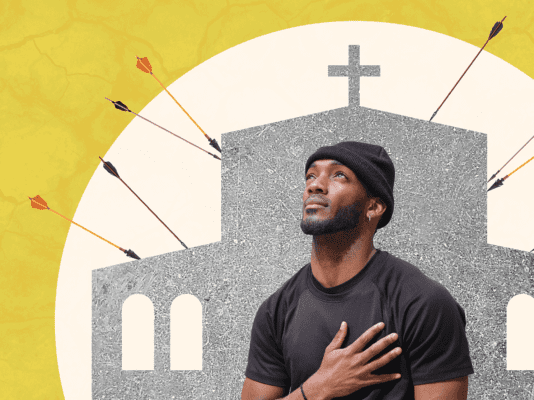Yesterday the United States Supreme Court has ruled in the case Whole Woman’s Health vs Hellerstedt, and the implications go far beyond the fact that Texas is denied the right to make certain that surgical abortions are as safe as other surgical procedures. In this case the Court has privileged abortion cases with a judicial doctrine that is, as Associate Justice Clarence Thomas demonstrates, “something…akin to strict scrutiny.” Lawyers like to say that strict scrutiny reviews are “strict in theory; fatal in fact”—in other words, that once a subject matter gains strict scrutiny as a standard for review, little can be done to restrict or regulate it. The Supreme Court has drawn a bright line and has chastised Americans who love life, saying, “No further!”
But we must go further. We cannot stop here. The ministry of reconciliation and the fruit of the Spirit and the task of being a neighbor and the love of Christ all compel us never to grow weary in the good cause of calling our nation to recognize all people as people. The legislators of the State of Texas have done what they can do, but most of us are not legislators. The pro-life lawyers who bravely pursued this case all the way to the highest court of the land have done what they can do, but most of us are not constitutional lawyers. The experts who have filed amicus curiae briefs on the side of life have done what they can do, but most of us will never have an opportunity to try to persuade the Supreme Court.
We, the people of the United States of America—the people of the churches of the United States of America—must find our own way to go further. Perhaps you are wondering whether you can do anything that makes a difference. I would suggest to you that there are several things that you can do, all of which can make an important difference. As a starting point, here are three simple changes we all can make that will make a difference.
First, please don’t scare pregnant women. Give them courage instead. Most women who seek abortions seek them because they are afraid. Sometimes that fear comes from us. I serve a conservative Southern Baptist church in one of the reddest counties of one of the reddest states in the nation. Nevertheless, I’ve counseled pregnant teens who have told me, “Members of your church have told me that having this baby will ruin my life and have suggested that I should just get an abortion.” Nothing I’ve ever heard has so broken my heart as that. Both as a pastor and as an adoptive father I’ve seen the way that boyfriends, family members, friends, and in one case, even a hospital janitor can bully and ostracize young women who want to do the right thing for their babies. Who is going to stand by these young women and give them courage? Why not us?
One great way to give them courage is to minister to them by meeting their needs. If their parents kick them out of their homes, give them a place to live. If they can’t or won’t raise the baby, make adoption an easier choice for them. Help them to know for certain that choosing life will not ruin their lives, because they won’t face the future alone. I’m so thankful to know that, even if there have sometimes been members of my church in the shadows scaring pregnant women, my church has a lot of members in it who have been ministering in the ways that I have mentioned and in even more ways than those. Let’s all stand together to give courage to young women who are trying to do the right thing.
Second, prioritize the cause of life. Judge the character of politicians based upon the stance they take with regard to abortion. Unfortunately, both parties have nominated candidates for President who have not demonstrated a commitment to the dignity of unborn human life. How do we face this decision? Because evangelical Christians decided that the pro-life cause is not that important. It was more important to them to support candidates who they thought would be more effective at making a statement than making a difference. I submit to you that if boorishness is a higher priority than saving the lives of babies, then saving the lives of babies is not really that high of a priority to us after all.
We can do better. Our priorities are shown in what we are willing to compromise in order to build coalitions. We can build pro-life coalitions with people who may disagree with us on some economic policies or other social policies. Instead we build coalitions with people who agree with us about fiscal conservatism but disagree with us about life. That’s all you need to know about where our priorities have really lain. I believe that is the wrong set of priorities, and so long as we approach the pro-life cause in this way, we’ll continue to get presidential choices like the one we face this year and court decisions like Whole Woman’s Health v Hellerstedt.
Finally, champion the champions of life. In Exodus 17 we read the story of a time in the life of Moses when the tide of a battle miraculously turned in favor of Israel whenever Moses was lifting up his arms. Over the course of the day, his arms grew tired. Determined to have victory and feeling compassion toward Moses’ fatigue, Aaron and Hur found Moses a stone to sit on while each stood beside him and lifted up an arm for him. The legislators, lawyers, activists, columnists, and non-profit leaders who tirelessly serve the pro-life cause have suffered a defeat this week. They need your support.
They need your support in prayer. This is a spiritual battle against spiritual wickedness in high places. They need your support in what you say. Be boldly and consistently (and winsomely!) pro-life in social media and in your social circle. They need your financial support, because cases like this one are costly.
We lost a battle this week, but we did not sign an armistice. Doing the right thing is often difficult. Do not let this verdict discourage you. Rather, let us all recommit ourselves to the cause of defending the most vulnerable people around us. Let us recommit ourselves to the idea of a nation in which the law treats all people as real people and offers them the protection they deserve.










